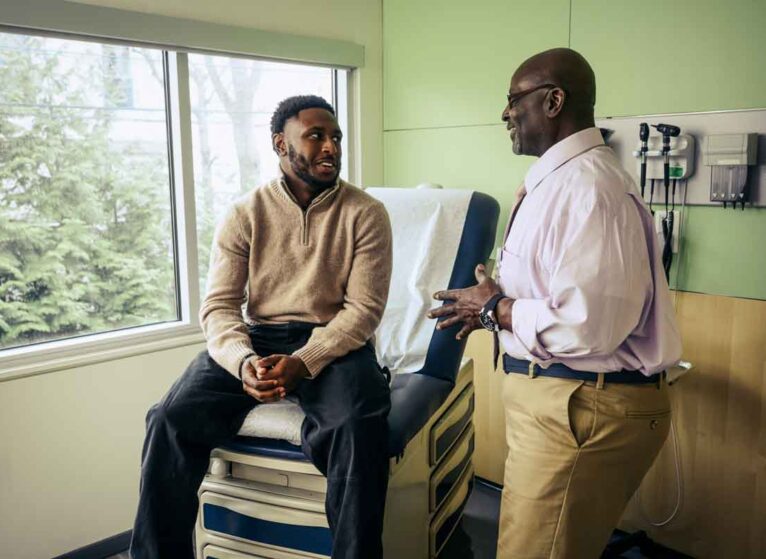Medical devices, like other mechanical tools and instruments, sometimes wear out. Similar to when there's a problem with a part of your car, medical devices sometimes need upgrades or repairs. Both the manufacturers and the U.S. Food and Drug Administration (FDA) issue an ‘advisory’ to alert doctors and patients to recalls and needed fixes. But how do you know about these medical device recalls?
We spoke with Oliver Monfredi, MD, PhD, medical director for our heart rhythm device services at UVA Health, for more on medical device recalls and advisories. "Medical device advisories or recalls are fortunately rare, but not unheard of in the field of heart rhythm medicine," notes Monfredi.
What is a 'Medical Device'?
Medical devices help doctors and patients every day. They help with catching diseases, monitoring patient health, and supporting or replacing the function of parts of the body. They can help keep you alive, reduce pain, help you sleep, or just make day-to-day living easier.
Medical devices may be used outside or inside your body. They include devices like:
- Pacemakers
- Implantable defibrillators
- Hip, knee, and shoulder replacements
- Hearing aids
- Breast pumps
- Insulin pumps
- Glucose monitors
- Replacement heart valves
- Sleep apnea machines
And many, many others. Some are used for convenience, but others may be helping to keep you alive.
What Is a Medical Device Recall or Advisory?
The term "recall" can be misleading, says Monfredi, because often the device isn't removed or returned to the manufacturer. Instead, we may need to make adjustments to how the device is used or change how we monitor your condition.
If you or a family member is using a medical device that is subject to one of these advisories, there’s no reason to panic. Many advisories are only precautions. They come out before problems appear in patients who are using them. In fact, most patients with a device recall/advisory won't experience any kind of problem, and may just be observed more closely. Monfredi says, "To be clear, although not perfect, the technology used in modern pacemakers and defibrillators is rigorously tested to the highest standards possible, and recalls are extremely rare."
Sometimes, only certain models or versions of a medical device are affected by an advisory.
Types of Recalls
It’s important to pay attention so that if a recall is issued, you're aware of it and can take steps to make sure that you or a loved one has the safest, most effective version of that medical device.
Recalls vary in their level of severity. The FDA uses three classes:
- Class I is the most serious. There may be a risk of severe injury or death, like when an internal defibrillator that's meant to shock your heart back into a normal rhythm doesn't work correctly.
- Class II cases may result in an injury, like when packaging fails to keep something sterile.
- Class III isn’t likely to cause an injury, but there is a violation of FDA regulations, like when the size of a device isn’t accurately listed.
Why Do Medical Device Advisories or Recalls Happen?
Medical device recalls and advisories happen for a number of reasons. The device may be at risk of incorrect behavior, like unexpectedly breaking down or delivering the wrong information. There may be complications that weren't seen during the testing phase.
Sometimes, labeling or instructions seem clear when the device is first released. But, they may turn out to be confusing for patients or their families and need correcting.
Software in certain devices, like heart monitors or insulin pumps, can also be the source of a problem. Software issues can mess with the device’s safety or performance.
Actions taken by the manufacturers of medical devices during a recall may include things like updating or clarifying instructions, fixing software bugs, or repairing or replacing the device.
How Would I Know If There's an Advisory or Recall of My Medical Device?
To protect your privacy, patient names and contact information aren't typically shared with medical device manufacturers. So, these companies usually send recall notices directly to doctors and hospitals, who then let their patients know what's going on.
Do You or a Loved One Have a Medical Device?
Questions about your device? Start by talking to your primary care doctor. They can help answer your questions or refer you to someone who can help.
"We keep extremely detailed records of our patients and know all of the hardware that they have implanted. As such, if we're contacted by a device manufacturer regarding an advisory or a recall, we rapidly create a list of the patients affected and quickly communicate with these patients what the issue is and what, if anything, will need to be done," says Monfredi.
Sometimes, you'll see stories in the media about a recall. Websites dedicated to certain diseases and medical conditions also often publish this information.
But if you have a medical device that's helping you stay healthy, you don't want to miss the news about an advisory. There are things you can do to stay up-to-date.
What Can I Do To Stay Informed?
#1: Keep Records
First, it’s important to know the brand, name, model, and serial number of your device, since not all versions are always included in a recall. Check the paperwork that comes with your device, write the information down, and keep it in a handy place. If your device is part of an advisory, this will help you know if your version is included.
#2 Sign Up For Alerts
Second, you can sign up on the FDA's website for alerts on device recalls.
Added bonus: You can also sign up for FDA MedWatch alerts about prescription and over-the-counter medicines, food and food ingredients, vaccines, cosmetics, pet food, livestock feed, and medical devices (and more).
#3 Browse the Database
Third, you can search the FDA’s Medical Device Recalls database, which contains information on years of device recalls.
If you’re having issues with your medical device, you can also report those problems to the FDA at their FDA MedWatch website. This helps the FDA to investigate and act if needed.
#4 Register With the Maker of Your Device
You may be able to register with the manufacturer of your device. This opens up a direct line of communication for receiving information about recalls straight from the manufacturer. Notices are targeted at exactly the model device that you have. That reduces confusion and the need to do detective work to see if your device is affected.
#5 Stay in Touch With Your Doctor
Finally, make sure your doctor and pharmacist have your current contact information. That way they can reach you quickly if they need to tell you about any device recalls.
What Should I Do If My Device Is Recalled?
If you learn that your device is part of an advisory, don’t stop using it until you talk to your doctor, unless the recall notice specifically tells you to stop using it. In those cases, make absolutely sure that the exact model or models of the device being recalled matches yours. Stopping on your own could put your health at risk. Your doctor can discuss options when the recall notice doesn’t tell you to stop using the device immediately.
"We're always happy to be contacted by any heart rhythm device patient with concerns about the function of their device, and whether it is or ever has been, subject to an advisory or a recall. We're here for you if you have questions or concerns,” Monfredi says.
In short, keep yourself informed, keep good records, and make sure your caregivers have your current contact information. Talk to your doctor if you have questions. These steps will help safeguard your health and that of any loved ones who may be using medical devices.


